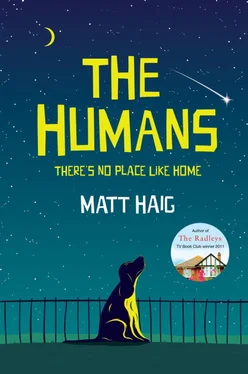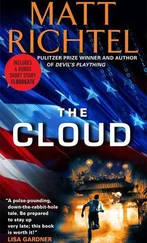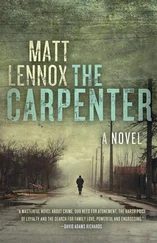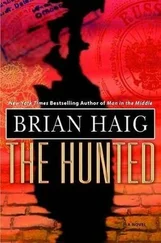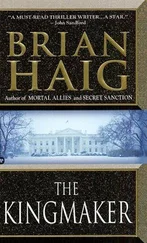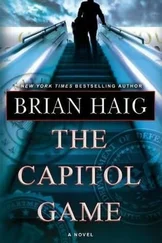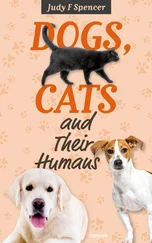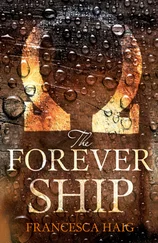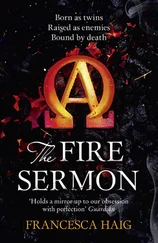I put something on that interested me. It was called The Planets by Gustav Holst. It was a piece of music all about the humans’ puny solar system, so it was surprising to hear it had quite an epic feel. Another confusing thing was that it was divided into seven ‘movements’ each named after ‘astrological characters’. For instance, Mars was ‘the Bringer of War’, Jupiter was ‘the Bringer of Jollity’, and Saturn was ‘the Bringer of Old Age’.
This primitivism struck me as funny. And so was the idea that the music had anything whatsoever to do with those dead planets. But it seemed to soothe Newton a little bit, and I must admit one or two parts of it had some kind of effect on me, a kind of electrochemical effect. Listening to music, I realised, was simply the pleasure of counting without realising you were counting. As the electrical impulses were transported from the neurons in my ear through my body, I felt – I don’t know – calm. It made that strange unease that had been with me since I had watched Daniel Russell die on his carpet settle a little.
As we listened I tried to work out why Newton and his species were so enamoured of humans.
‘Tell me,’ I said. ‘What is it about the humans?’
Newton laughed. Or as close as a dog can get to laughing, which is pretty close.
I persisted with my line of enquiry. ‘Go on,’ I said. ‘Spill the beans.’ He seemed a bit coy. I don’t think he really had an answer. Maybe he hadn’t reached his verdict, or he was too loyal to be truthful.
I put on some different music. I played the music of someone called Ennio Morricone. I played an album called Space Oddity by David Bowie, which, in its simple patterned measure of time, was actually quite enjoyable. As was Moon Safari by Air, though that shed little light on the moon itself. I played A Love Supreme by John Coltrane and Blue Monk by Thelonious Monk. This was jazz music. It was full of the complexity and contradictions that I would soon learn made humans human. I listened to ‘Rhapsody in Blue’ by Leonard Bernstein and ‘Moonlight Sonata’ by Ludwig van Beethoven and Brahms’ ‘Intermezzo op. 17’. I listened to the Beatles, the Beach Boys, the Rolling Stones, Daft Punk, Prince, Talking Heads, Al Greene, Tom Waits, Mozart. I was intrigued to discover the sounds that could make it on to music – the strange talking radio voice on ‘I Am the Walrus’ by the Beatles, the cough at the beginning of Prince’s ‘Raspberry Beret’ and at the end of Tom Waits songs. Maybe that is what beauty was, for humans. Accidents, imperfections, placed inside a pretty pattern. Asymmetry. The defiance of mathematics. I thought about my speech at the Museum of Quadratic Equations. With the Beach Boys I got a strange feeling, behind my eyes and in my stomach. I had no idea what that feeling was, but it made me think of Isobel, and the way she had hugged me last night, after I had come home and told her Daniel Russell had suffered a fatal heart attack in front of me.
There’d been a slight moment of suspicion, a brief hardening of her stare, but it had softened into compassion. Whatever else she might have thought about her husband he wasn’t a killer. The last thing I listened to was a tune called ‘Clair de Lune’ by Debussy. That was the closest representation of space I had ever heard, and I stood there, in the middle of the room, frozen with shock that a human could have made such a beautiful noise.
This beauty terrified me, like an alien creature appearing out of nowhere. An ipsoid, bursting out of the desert. I had to stay focused. I had to keep believing everything I had been told. That this was a species of ugliness and violence, beyond redemption.
Newton was scratching at the front door. The scratching was putting me off the music so I went over and tried to decipher what he wanted. It turned out that what he wanted was to go outside. There was a ‘lead’ I had seen Isobel use, and so I attached it to the collar.
As I walked the dog I tried to think more negatively towards the humans.
And it certainly seemed ethically questionable, the relationship between humans and dogs, both of whom – on the scale of intelligence that covered every species in the universe – would have been somewhere in the middle, not too far apart. But I have to say that dogs didn’t seem to mind it. In fact, they went along quite happily with the set-up most of the time.
I let Newton lead the way.
We passed a man on the other side of the road. The man just stopped and stared at me and smiled to himself. I smiled and waved my hand, understanding this was an appropriate human greeting. He didn’t wave back. Yes, humans are a troubling species . We carried on walking, and we passed another man. A man in a wheelchair. He seemed to know me.
‘Andrew,’ he said, ‘isn’t it terrible – the news about Daniel Russell?’
‘Yes,’ I said. ‘I was there. I saw it happen. It was horrible, just horrible.’
‘Oh my God, I had no idea.’
‘Mortality is a very tragic thing.’
‘Indeed, indeed it is.’
‘Anyway, I had better be going. The dog is in quite a hurry. I will see you.’
‘Yes, yes, absolutely. But may I ask: how are you? I heard you’d been a bit unwell yourself?’
‘Oh, fine. I am over that. It was just a bit of a misunderstanding, really.’
‘Oh, I see.’
The conversation dwindled further, and I made my excuses, Newton dragging me forward until we reached a large stretch of grass. This is what dogs liked to do, I discovered. They liked to run around on grass, pretending they were free, shouting, ‘ We’re free, we’re free, look, look, look how free we are! ’ at each other. It really was a sorry sight. But it worked for them, and for Newton in particular. It was a collective illusion they had chosen to swallow and they were submitting to it wholeheartedly, without any nostalgia for their former wolf selves.
That was the remarkable thing about humans – their ability to shape the path of other species, to change their fundamental nature. Maybe it could happen to me, maybe I could be changed, maybe I already was being changed? Who knew? I hoped not. I hoped I was staying as pure as I had been told, as strong and isolated as a prime, as a ninety-seven.
I sat on a bench and watched the traffic. No matter how long I stayed on this planet I doubted I would ever get used to the sight of cars, bound by gravity and poor technology to the road, hardly moving on the roads because there were so many of them.
Was it wrong to thwart a species’ technological advancement? That was a new question in my mind. I didn’t want it there, so I was quite relieved when Newton started barking. I turned to look at him. He was standing still, his head steady in one direction, as he carried on making as loud a noise as he possibly could.
‘ Look! ’ he seemed to bark. ‘ Look! Look! Look! ’ I was picking up his language.
There was another road, a different one to the one with all the traffic. A line of terraced houses facing the park.
I turned towards it, as Newton clearly wanted me to do. I saw Gulliver, on his own, walking along the pavement, trying his best to hide behind his hair. He was meant to be at school. And he wasn’t, unless human school was walking along the street and thinking, which it really should have been. He saw me. He froze. And then he turned around and started walking in the other direction.
‘Gulliver!’ I called. ‘Gulliver!’
He ignored me. If anything, he started walking away faster than he had done before. His behaviour concerned me. After all, inside his head was the knowledge that the world’s biggest mathematical puzzle had been solved, and by his own father. I hadn’t acted last night. I had told myself that I needed to find more information, check there was no one else Andrew Martin could have told. Also, I was probably too exhausted after my encounter with Daniel. I would wait another day, maybe even two. That had been the plan. Gulliver had told me he hadn’t said anything, and that he wasn’t going to, but how could he be totally trusted? His mother was convinced, right now, that he was at school. And yet he evidently wasn’t. I got up from the bench and walked over the litter-strewn grass to where Newton was still barking.
Читать дальше
